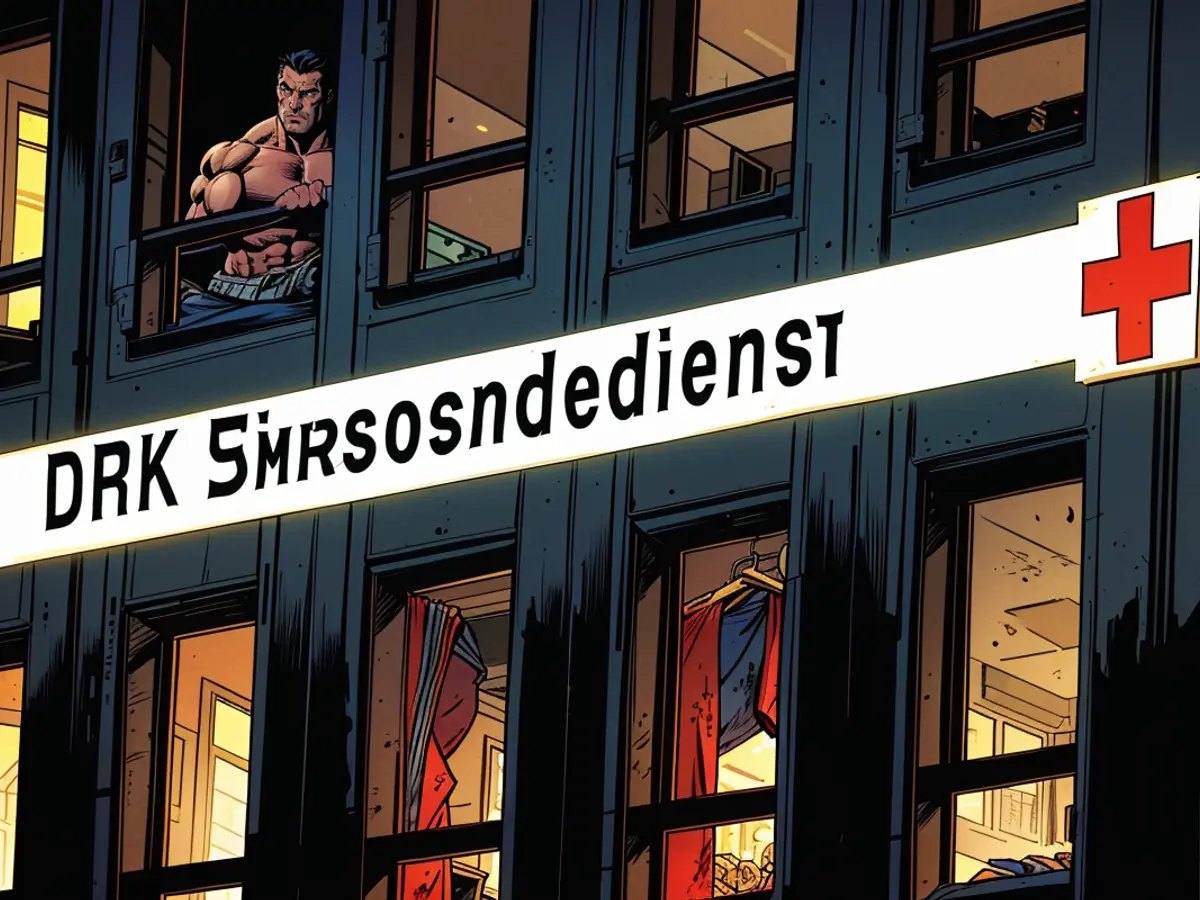Medical Treatment or Cure - Tension in blood supply: Germany urges for blood donations
The availability of life-saving blood products is running low in Berlin, Brandenburg, and Saxony, as reported by the German Red Cross (DRK) in Berlin. Kerstin Schweiger, spokesperson for the DRK Blood Donation Service North-East, spoke to the German Press Agency on the occasion of World Blood Donation Day on June 14th. She stated that since the end of the May holidays, they've been working hard to maintain a stable supply. Currently, the eagerness to donate blood is going down considerably. This could lead to serious consequences for patients in need.
The European Football Championship is just around the corner, and Schweiger fears that the willingness to donate blood will decrease even more. "People tend to forget about blood donation during major sporting events," she said. As of now, there's no acute shortage, but the stock levels in the depots are relatively low since May.
In Saxony, summer holidays start on June 20th, while in Berlin and Brandenburg, they begin a month later. This six-week absence of potential donors is a concern. This is because the shelf life of a blood concentrate is shorter than the summer break which, according to Schweiger, lasts longer than the life of a blood concentrate. "Then, after this summer, the next major event, the Olympic Games in Paris, is coming up."
Approximately 20% of blood concentrates are required for cancer patients. These vital blood platelets are only viable for four days. However, the erythrocyte concentrates in the DRK Blood Donation Service North-East need to be in ample supply across all blood groups to support emergency medical situations and patients who need blood frequently due to other severe illnesses.
Health Minister Petra Köpping (SPD) from Saxony emphasized the importance of blood donation, saying, "Whoever donates blood extends life. Whoever donates blood gives time and attention to others." The ministry estimates that around 80% of Germans will require at least one blood product at some stage in their lives. These products are predominantly used for cancer, heart, and gastrointestinal issues.
The DRK Blood Donation Services are urgently calling for blood donations now and in the following weeks. This process, including registration and the snack afterwards, takes about 45 minutes. Thus, a person could become a lifesaver during a football halftime.
Every year on June 14th, the World Health Organization (WHO) commemorates World Blood Donation Day. The date commemorates Karl Landsteiner's birthday, who identified blood groups in 1868. For this discovery, he received the Nobel Prize in Medicine in 1930.
To find out more about blood donation dates, visit this website.
Read also:
- Amidst the concerns about the European Football Championship affecting blood donation, Kerstin Schweiger from the DRK Blood Donation Service North-East urged people not to forget about the importance of donating blood.
- The German Red Cross (DRK) in Berlin has warned about a potential shortage of life-saving blood products in Berlin, Brandenburg, and Saxony, especially during the summer vacation periods in these regions.
- The German Press Agency reported that since the end of the May holidays, the eagerness to donate blood in Berlin and Brandenburg has been decreasing significantly, which could lead to serious consequences for patients in need.
- In response to the current situation, the DRK Blood Donation Services are urging people to donate blood now and in the following weeks, as the process only takes around 45 minutes and could potentially save a life during a football halftime.
- With the World Blood Donor Day commemorating Karl Landsteiner's discovery of blood groups on June 14th every year, the DRK encourages people to visit their website to find out more about blood donation dates in their area.
- The Health Minister from Saxony, Petra Köpping, emphasized the importance of blood donation, stating that by donating blood, individuals not only extend life but also give time and attention to others, as around 80% of Germans will require at least one blood product in their lifetime.
- The German press agency reported that the supply situation for blood products in Saxony, Berlin, and Brandenburg is critical due to the summer vacation break, which lasts longer than the shelf life of a blood concentrate and coincides with significant events like the European Football Championship and the Olympic Games in Paris.








